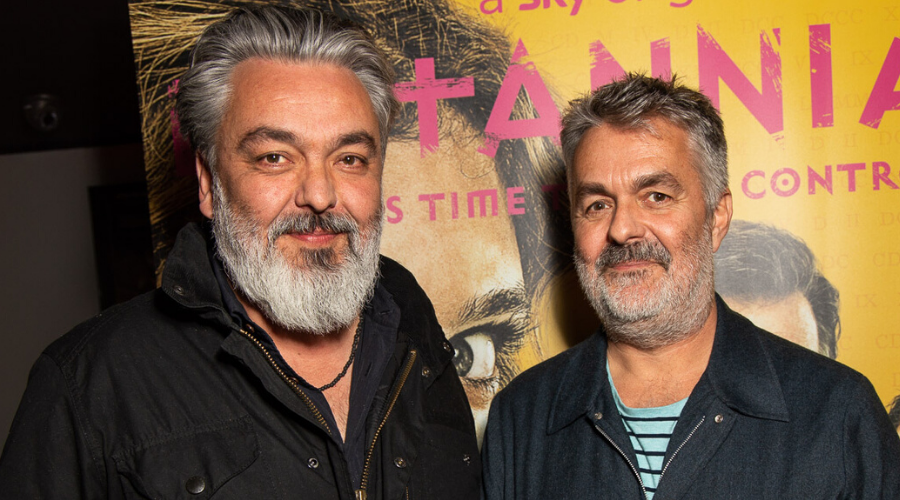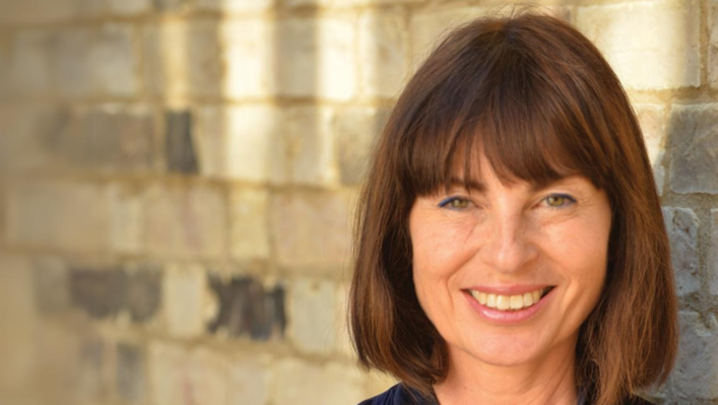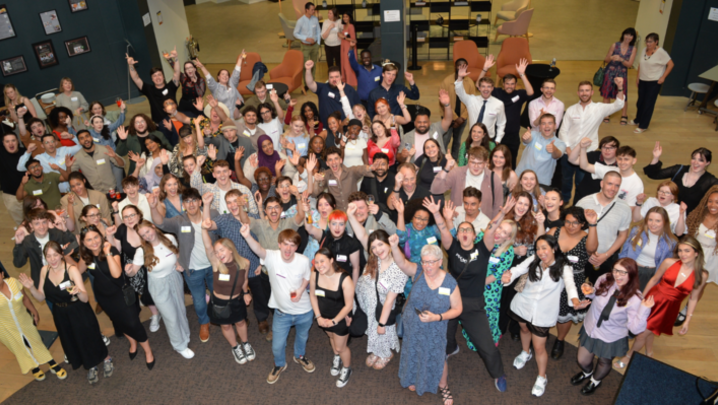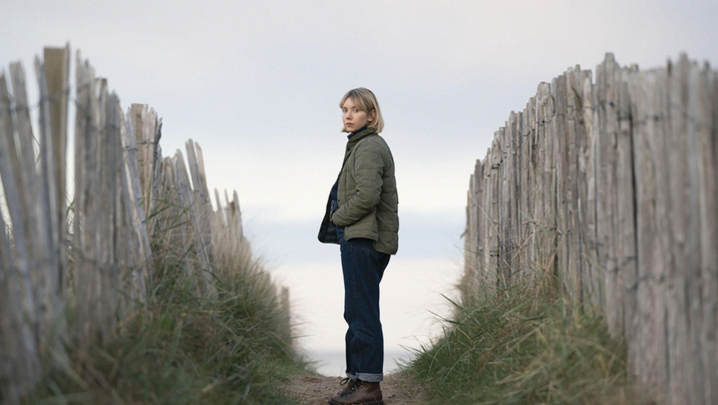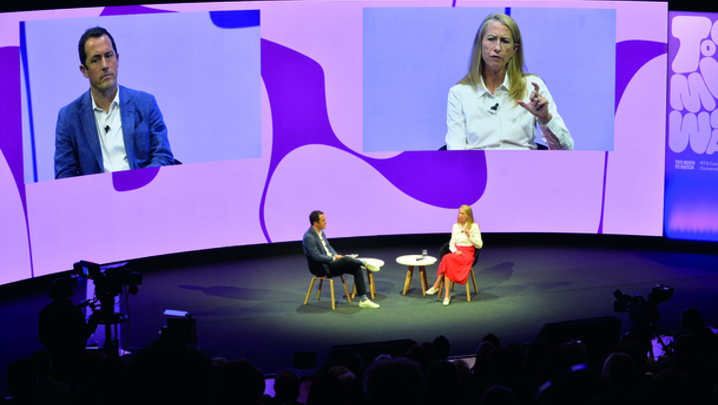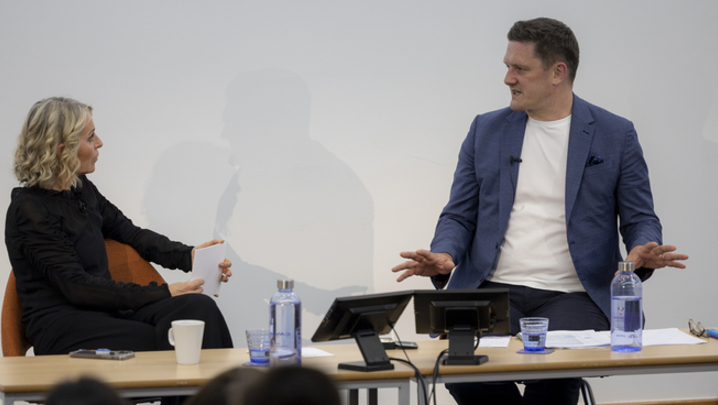Jez Butterworth and colleagues tell the RTS how his ‘gloriously bonkers’ historical saga repurposed the English costume drama. Steve Clarke reports
Period dramas come in myriad forms. Latterly, few have been as high concept as Jez Butterworth’s bloody and somewhat bewildering saga, Britannia, set roughly 2,000 years ago as the invading Romans attempt to “civilise” an island of warring Celtic tribes.
Co-produced by Sky Atlantic and Amazon Prime Video, the skill of the make-up department alone is worth tuning in for. The prosthetic work done to Mackenzie Crook, who plays druid mystic Veran, is extraordinary.
At an RTS screening of the first two episodes of Britannia season 2, followed by a panel Q&A session, the overwhelming impression from Butterworth, his brother Tom (a writer on the series) and producer James Richardson was of the fun the trio had in conceiving and executing what one reviewer described as a “gloriously bonkers” show.
Richardson, who founded Britannia’s maker, Vertigo Films, back in 2002, claimed that the series was dreamed up “over lots of bottles of red wine”. Judged by some of the more trippy sequences featuring what looks like a druid rave, and the clever use of music from the psychedelic 1960s (especially Donovan’s Season of the Witch), you wonder if the wine had been spiked with something a tad more mind-altering.
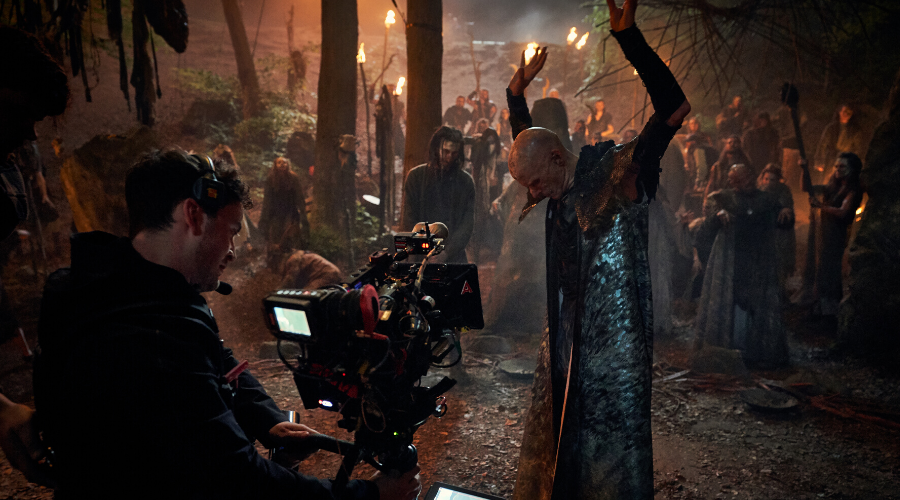
“Jez and I had never made any TV,” explained Richardson. “We knew nothing about how it worked. We’re used to film. Tom had done TV. He was the expert who helped us steer Britannia.”
Butterworth, the brilliant playwright responsible for Jerusalem and The Ferryman, admitted that, for the first nine episodes that comprised series 1, he was learning on the job.
This might have been so, but his name on the credits was enough to secure such A-list actors as David Morrissey and Zoë Wanamaker, who respectively play Roman general Aulus, and Celtic queen Antedia.
So, did Butterworth have to learn to use a different muscle as he switched from the stage to TV drama, asked the evening’s chair, journalist Caroline Frost? “Spending 10 or 20 hours with one character.… My plays are pretty long but they’re not that long. That chance to pick up something and make it run and run is something I’d never attempted.
“In film, it’s over before it’s even begun. It’s like a haiku, filming keep getting shorter. When I started out, they took 120 days, now they’re 90. TV is completely different, all the rules are different.”
How did they get it past Sky, whose most successful drama, Game of Thrones, has been compared to Britannia? “Bizarrely, when I said, ‘Let’s do druids, Celts and the Roman invasion of Britain, they madly went, ‘That sounds cool’,” replied Richardson. “They were massively supportive of the idea: ‘Let’s just dive into this world that we know nothing about.’
“They were very good about us not making a particularly historically accurate show.”
With scant historical knowledge of Britain in 43CE and no novels on which to draw (Game of Thrones is, of course, based on George RR Martin’s bestsellers), the imaginations of Britannia’s creators were free to go into overdrive.
"To have characters who were under those kinds of pressures, where their entire world of belief is crumbling and under threat – that is the reason for choosing the period"
“As you can see, it’s quite an ambitious show. The three of us were literally sitting round a table going, ‘What can we make all these people do now?’” recalled Richardson. “The historical accuracy was never part of that process. The historical advisor actually said: ‘We know about 40% of what the Romans did, about 20% of what the Celts did and we know nothing about what the druids did. So you can do what you want.’
“Even the bit that the Romans wrote was written later and it was written from the perspective of how brilliant they were.”
Bloody rituals, full-on violence and cod mysticism aside, Britannia does engage with a topic that down the ages has been a recurring preoccupation for human societies. “In all seriousness, it is about one religion dying out and another one coming along,” said Butterworth. “There are massive tectonic shifts in faith around this time, as one set of gods bully the other lot off the ball. That was the reason for me wanting to do it.
“To have characters who were under those kinds of pressures, where their entire world of belief is crumbling and under threat – that is the reason for choosing the period.”
Charismatic female characters are an essential element of “historical” fantasy TV. Britannia is no exception. On the panel were two: Annabel Scholey, who plays Amena, (queen-in-waiting of the Cantii tribe) and Eleanor Worthington-Cox, cast as Cait, a young woman from the Cantii tribe due to undergo an initiation into womanhood on the eve of the solstice. The procedure was knocked off schedule by the invading Roman hordes.
Scholey said she was attracted to the series because its female characters were all strong, independent women.
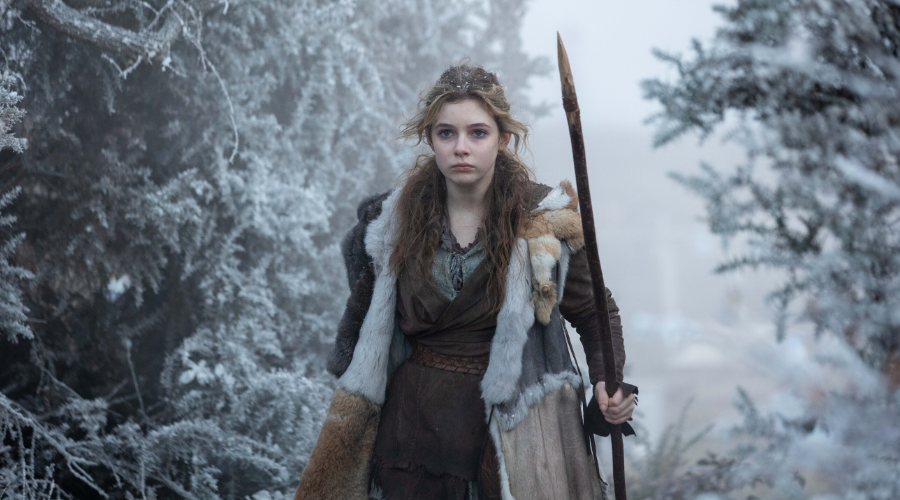
(credit: Sky)
She added that she wouldn’t have been interested in playing Amena had the part required her to be “a bodice-ripping prop for a man. That’s not why I became an actor. She’s equal to the men, if not greater.”
Worthington-Cox was 14 years old when she began working on Britannia. She is the youngest recipient of a Laurence Olivier Award, won when she was just 10 for her performance in the lead role in Matilda the Musical.
Three years ago, she played Janet Hodgson in Sky’s The Enfield Haunting, nominated for a Bafta supporting actress award.
She said: “I feel so lucky because I started out on this when I was 14.… To be honest, it’s been an absolute roller coaster.… From day one, Nikolaj [the actor Nikolaj Lie Kaas, who plays Divis, an outcast druid] and I got on like a house on fire. He is insane and so am I. I don’t think I could have worked with anyone better.… With this guy, there isn’t a dull moment.”
She added: “I can say on behalf of all of the women in this series that we feel we’ve been treated as equals.”
Scholey told the RTS that she particularly enjoyed the show’s salty language and dry humour: “The scripts were so refreshing. You’re in a big period dress and to have the freedom of speaking quite colloquial, hilarious dialogue is brilliant.
“The juxtaposition is not what you’d expect. There is no Jane Austen here.”
You can say that again. And for the record, Jez Butterworth claims he has never seen a single episode of Game of Thrones.
The RTS screening of Britannia season 2 and panel discussion was held at the Curzon Soho, Shaftesbury Avenue, London, on 29 October. The chair was journalist and broadcaster Caroline Frost. It was produced by the RTS in conjunction with Vertigo Films.

